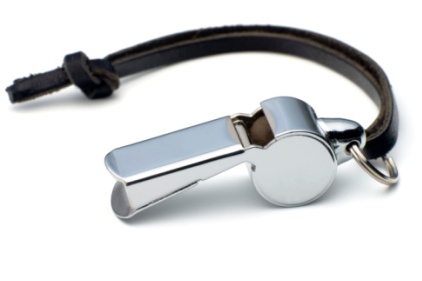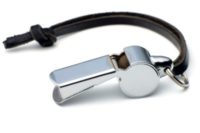 OSHA has determined that the Northeast Illinois Regional Commuter Railroad Corp., known as Metra, violated the Federal Railroad Safety Act when a signalman's work hours were changed and his position was eliminated after he made a safety complaint. The company is ordered to pay more than $38,080 in overtime, along with interest, compensatory damages and attorney's fees.
OSHA has determined that the Northeast Illinois Regional Commuter Railroad Corp., known as Metra, violated the Federal Railroad Safety Act when a signalman's work hours were changed and his position was eliminated after he made a safety complaint. The company is ordered to pay more than $38,080 in overtime, along with interest, compensatory damages and attorney's fees.
"An employer does not have the right to retaliate against employees who report safety issues," said Nick Walters, OSHA's regional administrator in Chicago. "When employees can't report safety concerns on the job without fear of retaliation, worker safety and, in this case, passenger safety on Metra, becomes a serious concern."
No time to test signal routes
An OSHA investigation upheld the 22-year Metra employee's allegation that the railroad reduced his overtime hours and eventually eliminated his position in retaliation for reporting a safety complaint on or about Aug. 1, 2011. After the employee reported that signal routes were not tested properly due to time constraints, he began to experience a reduction in overtime hours. Following his complaint filed with the secretary of labor alleging Metra had retaliated against him in violation of the FRSA, his position was eliminated.
Safety issue used as a "pretext" to cut hours, then position
OSHA's investigation found that the reporting of the safety issue was used as a pretext by the employer to reduce overtime and eliminate the employee's position. Metra provided no explanation for the reduced overtime hours or for eliminating the position so soon after the employee made his safety complaint.
The railroad carrier has been ordered to remove disciplinary information from the employee's personnel record and to provide whistle-blower rights information to its employees. Either party in the case can file an appeal with the department's Office of Administrative Law Judges.
On July 16, 2012, OSHA and the U.S. Department of Transportation's Federal Railroad Administration signed a memorandum of agreement to facilitate coordination and cooperation for enforcing the FRSA's whistle-blower provisions. Between August 2007, when OSHA was assigned responsibility for whistle-blower complaints under the FRSA, and September 2012, OSHA has received more than 1,200 FRSA whistle-blower complaints. More than 60 percent of the FRSA complaints filed with OSHA involve an allegation that a railroad worker has been retaliated against for reporting an on-the-job injury.


